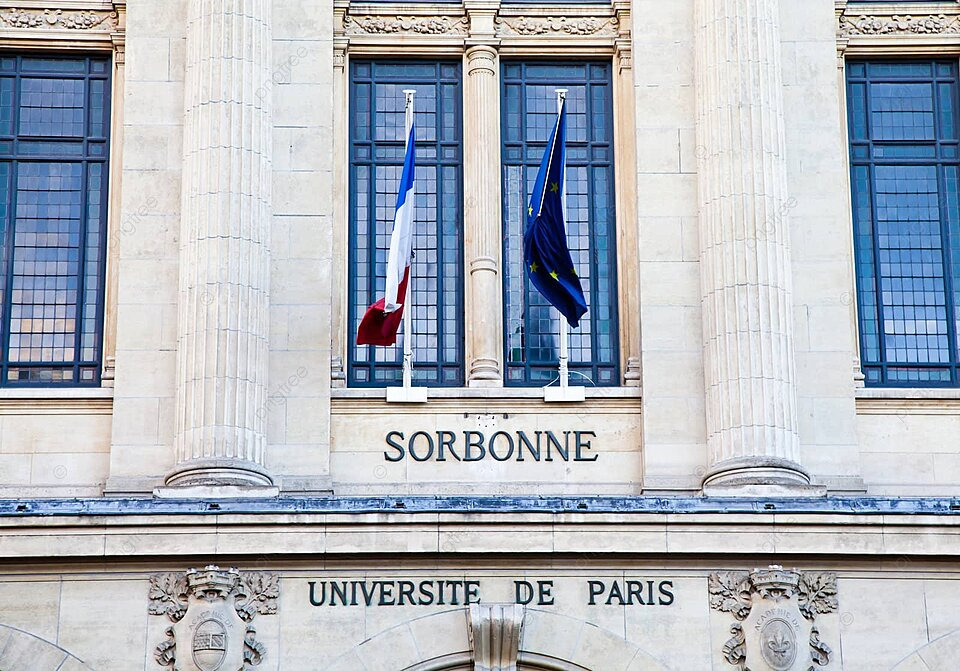Studying abroad is a valuable opportunity to expand your worldview, add significant career prospects, and explore different cultures. In this context, France, located in the heart of Europe, is one of the most attractive countries for many students, offering quality education, historical and cultural richness, a pleasant lifestyle, and affordable educational opportunities. This guide provides detailed information for students who want to pursue higher education in France, covering the education system, fees, scholarships, application processes, and student life comprehensively.

The Education System and Universities in France
France has a broad and diverse higher education network with over 3,500 educational institutions. These institutions include 72 public universities, 25 multi-institute campuses, and 271 doctoral schools. Additionally, nearly 3,000 private educational institutions operate in the country. This variety allows students to find many options that align with their academic and career goals.
Public universities in France are renowned worldwide and open their doors to many international students. Universities such as Université PSL, Institut Polytechnique de Paris, Sorbonne Université, and Université Paris-Saclay are ranked among the top 100 in the QS World University Rankings and are particularly well-regarded in science, engineering, social sciences, and the arts. Similarly, in the THE (Times Higher Education) rankings, France’s top universities are recognized for their respected education and research programs on the international stage.
The French education system supports academic depth and interdisciplinary studies. French universities offer undergraduate, graduate, and doctoral programs in various fields, providing students with a strong theoretical foundation while supporting them with practical research and internships.
Leading Universities in France
- Sorbonne Université: Known for its high-quality education in humanities and sciences, as well as its historical and cultural heritage.
- Université PSL (Paris Sciences et Lettres): Stands out with its multidisciplinary approach, offering undergraduate and graduate programs in various fields.
- Institut Polytechnique de Paris: A great option for students aiming for a career in science and innovation, especially in engineering and technology-focused programs.
Educational opportunities in France also come with a strong research tradition. French universities in fields such as engineering, sciences, and arts contribute extensively to international research projects and collaborations, offering unique academic opportunities for international students.
Tuition Fees and Scholarships in France
France offers relatively affordable higher education compared to other European countries. The French government provides financial support to students studying at public universities, keeping education costs low. Tuition fees at public universities vary for EU citizens and non-EU citizens.
Tuition Fees for Public Universities
- Tuition Fees for EU Citizens:
- Undergraduate: €170 per year
- Master’s: €243 per year
- Doctorate: €380 per year
- Engineering Programs: €601 per year
- Tuition Fees for Non-EU Citizens:
- Undergraduate: €2,770 per year
- Master’s: €3,770 per year
Private Universities and Educational Institutions
Annual tuition fees at private universities generally range from €3,000 to €10,000. These fees vary depending on the institution’s location, prestige, and programs offered. Therefore, it is important to visit the university’s website where you plan to apply for detailed information about fees and the application process.
Scholarship Opportunities
There are many scholarship opportunities for international students who want to study in France. The French government and various private institutions offer scholarship programs to help cover the educational expenses of international students. Scholarships such as the Eiffel Excellence Scholarship Program and Campus France are available for application. Additionally, some universities offer special scholarships and financial support programs for their students.
English-Taught Programs in France
Although French is the primary language of instruction in France, many universities offer English-taught programs, especially at the master’s and doctoral levels. This is a major advantage for students who have limited knowledge of French and want to study internationally. English-taught programs allow students to overcome language barriers and receive a quality education.
Universities Offering English-Taught Programs
- Ecole Polytechnique: Offers English-language master’s programs in science and engineering.
- Paris Tech: A prestigious institution offering various engineering programs in English.
- Université De Nantes: Provides a variety of undergraduate and graduate programs in English, making it an attractive option for international students.
Students who wish to study in English must achieve good results in international English proficiency tests such as IELTS or TOEFL. Scores obtained from these exams must meet the minimum requirements set by the universities.
Admission Requirements and Application Process for French Universities
The application process for French universities may vary depending on the level of education and whether the applicant is an EU citizen. Generally, when applying to undergraduate and graduate programs in France, students must prepare certain documents and meet the application requirements.
Required Documents for Application
- ID or Passport Copy: A valid copy of an ID or passport.
- Academic Records: High school or university transcripts (with French translations).
- Language Proficiency Certificates: DELF or DALF for programs taught in French, IELTS or TOEFL for programs taught in English.
- Motivation Letter and Reference Letters: A motivation letter explaining why the student wants to study in France and their interest in the field. Academic or professional references are also required.
Application Process
Applications for non-EU citizens are generally processed through the Campus France platform, which facilitates the application process and helps students access accurate information. If the application is approved, students receive acceptance letters, which are necessary for student visa applications.
Student Life and Living Costs in France
Student life in France is characterized by a high quality of living and rich cultural experiences. However, living costs can be high, especially in major cities. Cities like Paris tend to be more expensive in terms of accommodation and daily living costs compared to other regions.
Living Costs
- Monthly Living Costs in Paris: Approximately €958 excluding rent.
- Monthly Living Costs in Other Cities: Around €813.
- Accommodation Costs:
- Paris: Monthly rent for a studio apartment is approximately €800.
- Other Cities: Monthly rent is around €400.
- CROUS Residences: A more affordable option, costing around €400 per month in Paris and €250 in other regions.
- Food and Transportation:
- University Cafeterias: Offer affordable meal options for students; a meal costs approximately €3.25.
- Public Transportation: Annual subscription in Paris costs around €342.
Students can reduce their living expenses by opting for CROUS student residences or benefiting from various government-provided scholarships and discounts. Additionally, international students have the opportunity to work part-time to earn extra income.
Law Education in France

Studying law in France is particularly advantageous for students aiming for a career in international law. The French legal system has a significant impact worldwide, and studying law in France provides students with a strong academic foundation and an extensive international network.
Stages of Law Education
- Bachelor’s Degree (LLB): Lasts 3 years and provides fundamental knowledge and skills in law.
- Master’s Degree (LLM): Lasts 2 years, allowing students to specialize deeply in a specific field.
- Doctorate (PhD in Law): Takes at least 3 years and offers opportunities for advanced research in a specific legal area.
Foreign students who graduate with a law degree in France can practice law in their home countries. However, in Turkey, graduates may need to take exams for additional courses to meet the requirements of Turkish law faculties.
Advantages of Studying in France
There are many advantages to pursuing higher education in France. Some of these include:
- Global Recognition: Universities in France are recognized and prestigious worldwide.
- Cultural Richness: France offers students a unique living experience with its historical and cultural wealth.
- Opportunity to Learn French: Learning French can provide a significant advantage in your career.
- Extensive Scholarship Opportunities: Scholarships provided by the French government and various organizations can significantly reduce education costs.
Studying in France not only provides you with academic knowledge but also allows you to develop yourself by experiencing a different culture. Studying in France helps you gain an international perspective in your career and offers significant advantages in the business world. Researching the program you wish to enroll in carefully, starting the application process early, and taking advantage of scholarship opportunities will help you succeed in this process.

